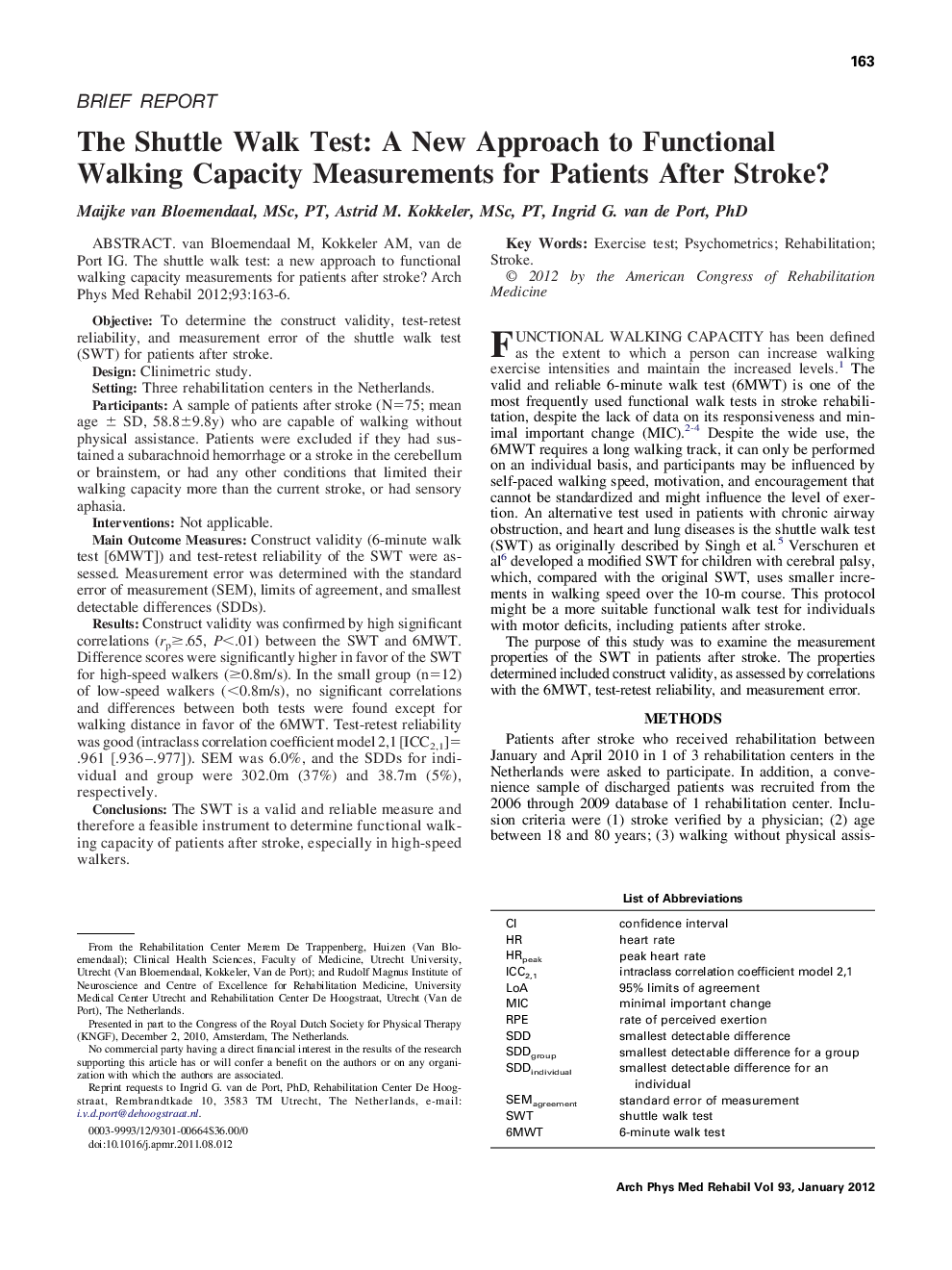| Article ID | Journal | Published Year | Pages | File Type |
|---|---|---|---|---|
| 3450222 | Archives of Physical Medicine and Rehabilitation | 2012 | 4 Pages |
van Bloemendaal M, Kokkeler AM, van de Port IG. The shuttle walk test: a new approach to functional walking capacity measurements for patients after stroke?ObjectiveTo determine the construct validity, test-retest reliability, and measurement error of the shuttle walk test (SWT) for patients after stroke.DesignClinimetric study.SettingThree rehabilitation centers in the Netherlands.ParticipantsA sample of patients after stroke (N=75; mean age ± SD, 58.8±9.8y) who are capable of walking without physical assistance. Patients were excluded if they had sustained a subarachnoid hemorrhage or a stroke in the cerebellum or brainstem, or had any other conditions that limited their walking capacity more than the current stroke, or had sensory aphasia.InterventionsNot applicable.Main Outcome MeasuresConstruct validity (6-minute walk test [6MWT]) and test-retest reliability of the SWT were assessed. Measurement error was determined with the standard error of measurement (SEM), limits of agreement, and smallest detectable differences (SDDs).ResultsConstruct validity was confirmed by high significant correlations (rp≥.65, P<.01) between the SWT and 6MWT. Difference scores were significantly higher in favor of the SWT for high-speed walkers (≥0.8m/s). In the small group (n=12) of low-speed walkers (<0.8m/s), no significant correlations and differences between both tests were found except for walking distance in favor of the 6MWT. Test-retest reliability was good (intraclass correlation coefficient model 2,1 [ICC2,1]=.961 [.936–.977]). SEM was 6.0%, and the SDDs for individual and group were 302.0m (37%) and 38.7m (5%), respectively.ConclusionsThe SWT is a valid and reliable measure and therefore a feasible instrument to determine functional walking capacity of patients after stroke, especially in high-speed walkers.
